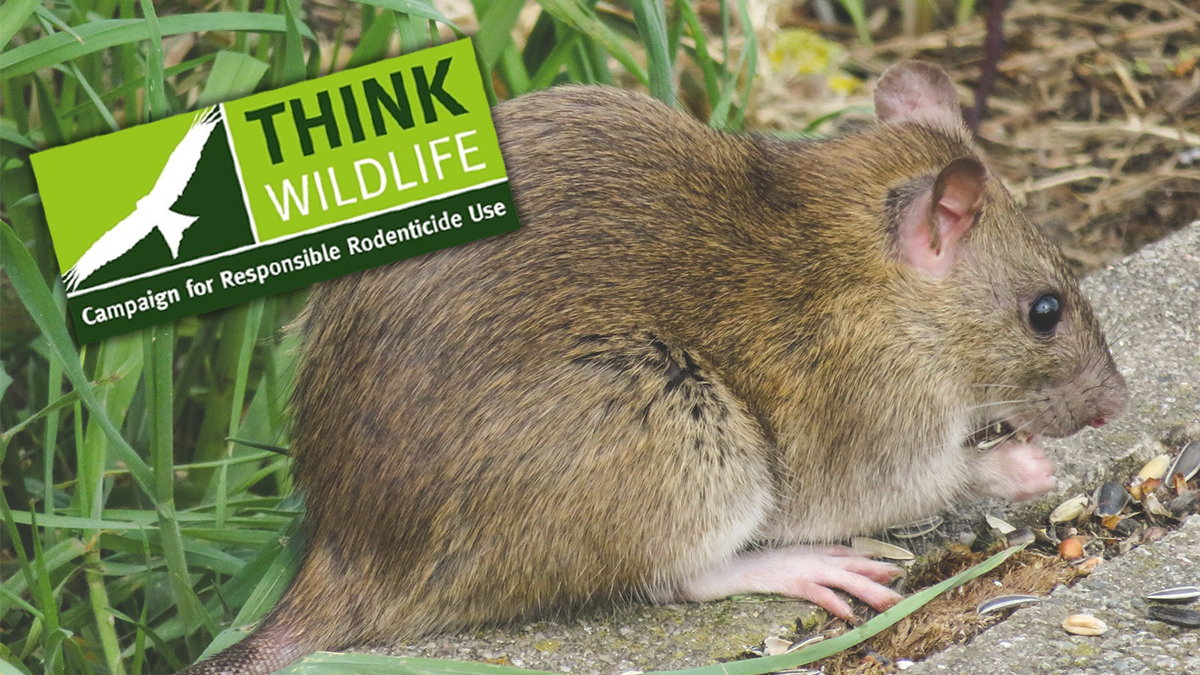Rodenticide resistance in rats has been confirmed in several new areas by a Campaign for Responsible Rodenticide Use study.

These include Durham, Northumberland, Tyneside and North Yorkshire, Greater Manchester and along the River Severn valley from Somerset to north west Shropshire, northern East Anglia and Devon.
Surveillance in 2019 by University of Reading's Vertebrate Pests Unit, covering house mice as well as rats, finds 93% and 61% respectively carrying at least one rodenticide-resistance gene.
Among rats, nearly half have inherited the gene from both parents.
The new locations add to an existing widespread presence in central southern England.
One of the genes previously identified only on the Anglo-Welsh border was found in North Yorkshire, Merseyside and Essex.
The most severe resistance gene, already present in much of central southern England, was found for the first time in Devon.
CRRU chairman Dr Alan Buckle says the study's purpose includes to support a "competent workforce", one of the UK Rodenticide Stewardship Regime's specific objectives.
"The report will help pest controllers, farmers and gamekeepers make well informed choices of anticoagulant active substance," he adds.
According to co-author Prof Colin Prescott, the widespread dominant presence of resistance genes across central southern England, where much of the country’s commercial and agricultural activity occurs, makes it hardly surprising they are spreading at the margins.
"This appears to be happening, for example, into Devon on the west, or Kent and East Sussex in the east," he says. "A similar phenomenon may be responsible for finding rats carrying a resistance gene in central London.
"However, this boundary creep in not the only observation. A serious concern is finding one of the resistance genes appearing to leap-frog to East Anglia and West Yorkshire from its Hampshire and Berkshire origin. This suggests perhaps new original mutations entirely separate from an existing one, or that rats with the gene have been transported to new localities and flourished there.
"Another concern is the Severn Valley where, from Somerset to the north-west edge of Shropshire, the same resistance gene has been identified in every county. This suggests a large singular rather than multiple independent zones. Similarly, the same resistance gene is found in all Yorkshire's sub-counties."
This surveillance is funded by the Rodenticide Resistance Action Committee of CropLife International and continues in 2020.
The main source of samples for analysis are tail-tips submitted voluntarily by pest controllers.
Since it began, Prof Prescott says the few samples submitted from English midland counties and much of Wales and Scotland have detected only rodenticide-susceptible animals.
"Quite why these regions retain susceptibility, or indeed whether this is the case, may only be answered by more detailed genetical studies," he adds.
Meanwhile, pest control technicians, farmers and gamekeepers in these priority areas are being encouraged to submit 2-3cm tail tip samples from rats that died by non-poison means.
Instructions can be found at research.reading.ac.uk/resistant-rats/.
The surveillance study report, with details of genes, geography and implications, is available at thinkwildlife.org/downloads.
Source: CRRU press release